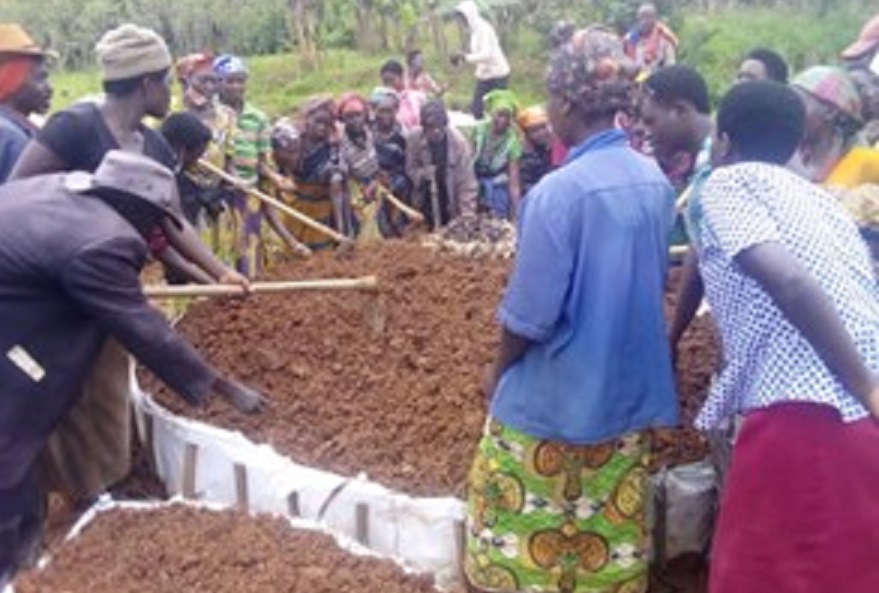Like the poor widow of the Gospel who offers two small copper coins (Mk 12:41), Caritas Rwanda, despite its limited means and personnel, continues to advocate and give its small contribution to alleviating hardships that the most vulnerable people across all its networks face. This is the case for the Karongi district where a project dubbed Tube Aheza, Amazi Hafi co-financed by the Slovenian Ministry of Foreign Affairs and Caritas Slovenia is taking place. Tube Aheza, Amazi Hafi project started in 2019 as Caritas Rwanda’s contribution to arise to the challenges brought by COVID-19.
This project has 1450 beneficiaries and is being implemented by Caritas Nyundo/ Kibuye under the supervision and coordination of Caritas Rwanda. The project contributes toward adequate water infrastructure and sustainable management capacity for the vulnerable population of the Gashari, Mutuntu, Rugabano, and Rwankuba sectors. Two water supply systems are under rehabilitation and will help local communities to access clean water. Equally, 20 handwashing stations and 4 water kiosks were built in all the project’s coverage areas.
Notwithstanding the construction and rehabilitation of water supply systems, Caritas Rwanda was compelled to help vulnerable youths and adults from the four sectors to make ends meet. The project has established community-based saving and lending groups for the beneficiaries and through these groups, the beneficiaries save but also ask for small loans to start-up small businesses or income-generating activities after being trained on business planning. With small-scale businesses ranging from the sale of services like Irembo, animal rearing, and food and drink joints, the beneficiaries access and afford socio-economic services such as community-based health insurance, school fees, and any other related basic needs.
In the Karongi district, as is the case elsewhere, Caritas Rwanda sympathizes with those who do not have sufficient food to meet their dietary needs for a productive and healthy life. Small-scale farmers who had been relying on subsistence farming and were living from hand to mouth were trained by the project on Good Agricultural Practices (GAP) toward sustainable food security. Through Farmer Field Learning School (FFLS) the project beneficiaries were trained on good farming practices and were provided with small animals for manure, improved seeds, and fruit trees. Apart from the manure, small animals are as well an added source of income.
Such a project is a reminder that there is nothing as a small contribution in accompanying and giving hope to many. Caritas Rwanda’s accompaniment is kindled by solidarity and engagement, especially of the least in our midst. Accompanying the poor does not mean taking over their struggles or hardships, but helping them to gain a foothold on the ladder climbing toward self-reliance. Engagement on the other hand is to inspire the beneficiaries to act without taking away agency from them. Tube Aheza, Amazi Hafi beneficiaries have got a glimpse of the sky. Who knows, one day they may fly!


